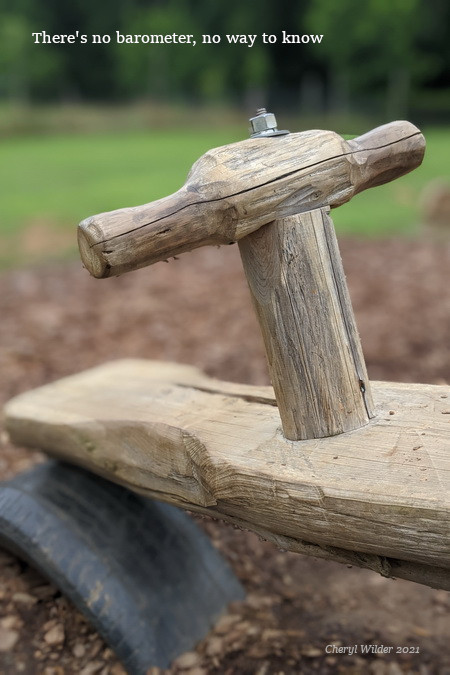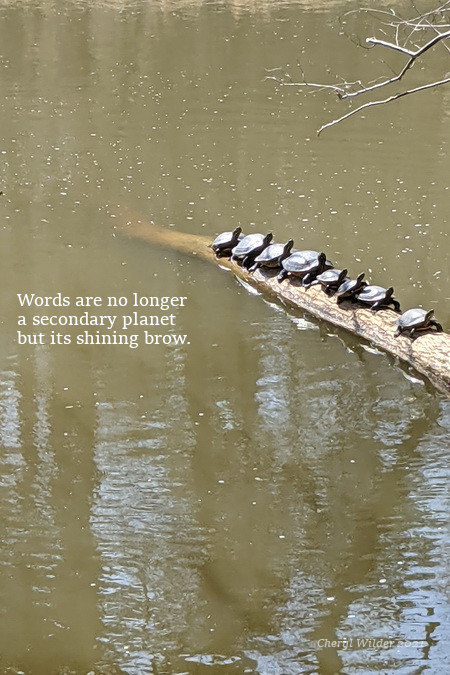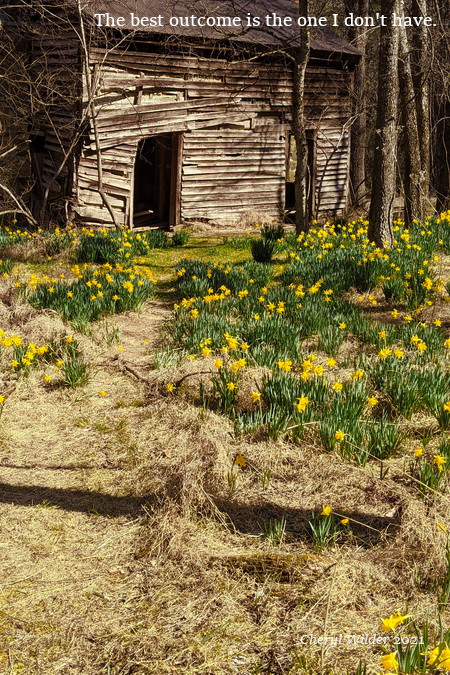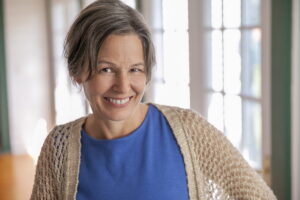Teetering. To teeter. To wobble, toddle, sway. From Old Norse titra, meaning shake, shiver. From titra to titter to teeter–an unsteady waver; indecision.
The teeter-totter I shared with my sister had a curved half-moon base instead of a teeterboard placed upon a fulcrum. Neighborhood kids flocked to our yard. Two at a time, we sat at opposite ends, rocking higher and higher, trying to flip the other person off. Everyone held on tight. I was no more than seven.
My husband calls them seesaws, as do most people. But a seesaw is simply a back and forth, a jarring from one direction to another. I can’t adopt the term seesaw. It doesn’t capture what happened in my yard–my first desire to float knowing there was an eventual fall. With every up and down, I shivered and wobbled. My head was swimming, unsteady. Excitement, anticipation, fear, triumph–teetering jolted me into an awareness where I wanted more.
What a difference four decades makes. Of bearing witness to the ongoing teetering in everyday life. The day-to-day preparation for the eventual falls. A building exhilaration with every rise, the tantalizing pinnacle. The hours of trying to make the right decision, of accepting other people’s decisions no matter how much they hurt. The joy in finding balance. Within myself. With the constant flux of the world.
My desire to float has not wavered. I just make sure there’s a soft cushion around. How far I am from my childhood yard, now that my preferred teetering is within poem-making. Where I shake and sway and waver, learning that not knowing is a path toward acceptance, an awareness that what I have is enough. And when I reach high and low moments, letting go is exactly the thing to do.
The last virtual book launch question answered.
Cheryl, how do you feel tonight, finally getting this story out into the world, via your gorgeous literature?
The book launch was deeply satisfying. To say that I felt all the emotions tied to “teetering” is an understatement.
Today, I feel something akin to the moment when one moves from teetering to steady. I never lied about my story. And yet, it’s not the kind of story one shares in casual conversation, or at dinner parties while getting to know new acquaintances. It’s a downer story. When I did share, it often sucked the air out of a room. So, though I never lied, I didn’t always share my full truth.
In my twenties, when I first started to write about the crash, I told myself that it was my job to write the hard stuff. Through writing, I could carry other people’s burdens. Let me do that emotional heavy lifting for you. And I wasn’t altogether incorrect. I’m a poet, after all.
With age, I learned I cannot carry other people’s burdens. My job is to help people feel less alone. And shame is lonely. In my experience, it’s an overlooked emotion that causes roadblocks in personal growth. In addition to obvious offenses (like my story), small offenses build up over time, unnoticed–a thousand paper cuts. Forgiveness is a remedy to shame. And yet, the path to forgiveness can feel impossible, especially when the person you have to forgive is yourself.
Though I dealt with the crash in my personal life, I didn’t know how to handle it in my writing. In my story, I’m the unreliable speaker–the offender. I crafted the book so readers could trust the speaker and see her guilt. You can imagine my elation when I read this comment at the book launch: “I’m struck by the trust you’ve learned to have in your readers, trusting us to see the humanity in your story and the connection we all have with tragedy.”
Now, I can talk about the book in casual conversation, providing me a conduit to talk about the crash. More importantly, writing the book removed a roadblock in my writing. I needed to tell this story, and now it’s told. I’m relieved the story is written. I have so much more to say.
Quote and photo by author. (From “Xing” in Anything That Happens.) All rights reserved.






